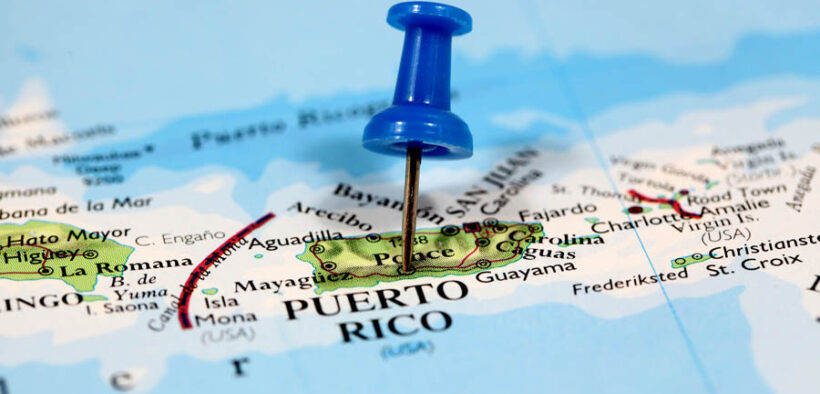Puerto Rico must rethink its municipal structure — before it’s too late

Puerto Rico stands at a critical crossroads. We are not just facing a fiscal crisis but a demographic and structural one — particularly in how we govern our 78 municipalities. This outdated model no longer reflects the realities of a shrinking population, a stagnant economy and the urgent need for efficient public service delivery. Now is the time to fundamentally rethink and restructure our municipal system to build a more resilient, equitable and fiscally sustainable Puerto Rico.
For decades, municipalities have played a central role in shaping community identity and delivering local services. However, many of them today are under severe financial strain. Nearly half operate with persistent deficits. Most depend heavily on subsidies from the central government. Administrative overhead is high, service quality is inconsistent and critical infrastructure — such as waste management, water systems and public health facilities — is often under-resourced or failing altogether.
These challenges are compounded by Puerto Rico’s demographic decline. Since 2010, the island has lost nearly 15% of its population, with some towns experiencing drops of 30% to 40%. The population is aging rapidly and growing poorer. This demographic transformation has drastically reduced the tax base that municipalities depend on, making their current structure unsustainable.
Despite these realities, the number and boundaries of our municipalities remain frozen in time. The current model assumes growth, economic dynamism and stable federal support — all conditions that no longer exist. To continue this path is to perpetuate inefficiency, waste and inequality between regions. Wealthier urban municipalities can still attract private investment and maintain services. Rural and mountainous towns, however, are increasingly unable to deliver even basic functions.
Restructuring does not mean erasing history or culture. Rather, it means aligning government functions with fiscal realities and demographic trends. It means consolidating overlapping services, modernizing operations, sharing administrative functions across regions and investing in data-driven decision-making. We must move from 78 fragmented silos to a leaner, smarter system built for the 21st century.
But as calls for reform grow louder, we must resist misguided efforts to simply raise revenue without addressing inefficiency. A clear example is Senate Bill 615, which proposes taxing so-called “voice channels” and expanding the definition to include mobile phones, antennas, fiber lines and broadband infrastructure. This bill would give municipalities the power to impose new fees on essential digital infrastructure and services, drastically increasing costs for consumers and businesses alike.
Senate Bill 615 is not just poorly designed — it’s dangerous. It would penalize Puerto Ricans for accessing the very tools they need to work, study and connect in a modern economy. It would burden small businesses, deter tech investment and slow down innovation. Most importantly, it would hit low-income and elderly populations the hardest — those already struggling with rising costs and limited access.
We cannot tax our way out of dysfunction. Puerto Rico’s future depends on fiscal responsibility — not new revenue streams built on shaky legal definitions and shortsighted policy. We need a bold shift in how local government operates, not another layer of taxation on a population that is shrinking, aging and growing poorer.
The path forward is clear. Puerto Rico needs a Municipal Reform Commission — an independent body with the authority to assess population trends, service needs, geographic logic and fiscal capacity. This commission should be empowered to recommend mergers, redraw boundaries and propose a new governance framework that supports collaboration, efficiency and long-term economic growth.
Other places have done it. In the U.S., states like Maine and Indiana have implemented municipal consolidations to reduce costs and improve outcomes. Internationally, countries like Denmark, Japan and New Zealand have modernized their local governance models to reflect shifting populations. Puerto Rico can do the same — on our own terms, with community input and political will.
We are running out of time. Federal disaster and recovery funds will not last forever. The fiscal oversight board continues to demand discipline and cost-cutting. The next economic shock — whether natural, fiscal or political — could overwhelm the fragile systems keeping many municipalities afloat.
We can no longer afford to postpone this conversation. The longer we wait, the more difficult the transition will be and the more our people will suffer under an outdated and inefficient model.
Puerto Rico’s future demands boldness. Let us have the courage to redefine what municipalities mean in the 21st century — not as relics of the past, but as engines of resilience, equity and sustainable development. If we act now, we can build a system that works not just for today but for generations to come.

Author Raúl Burgos is president and managing partner of Global 1080 Business Solutions, a consulting firm with over 15 years of experience supporting business leaders across the U.S., Puerto Rico and Latin America. With more than 30 years of business experience, he is also the founder of the Puerto Rico Business Group on LinkedIn, a professional community of more than 30,000 members focused on economic development and entrepreneurship in Puerto Rico.




